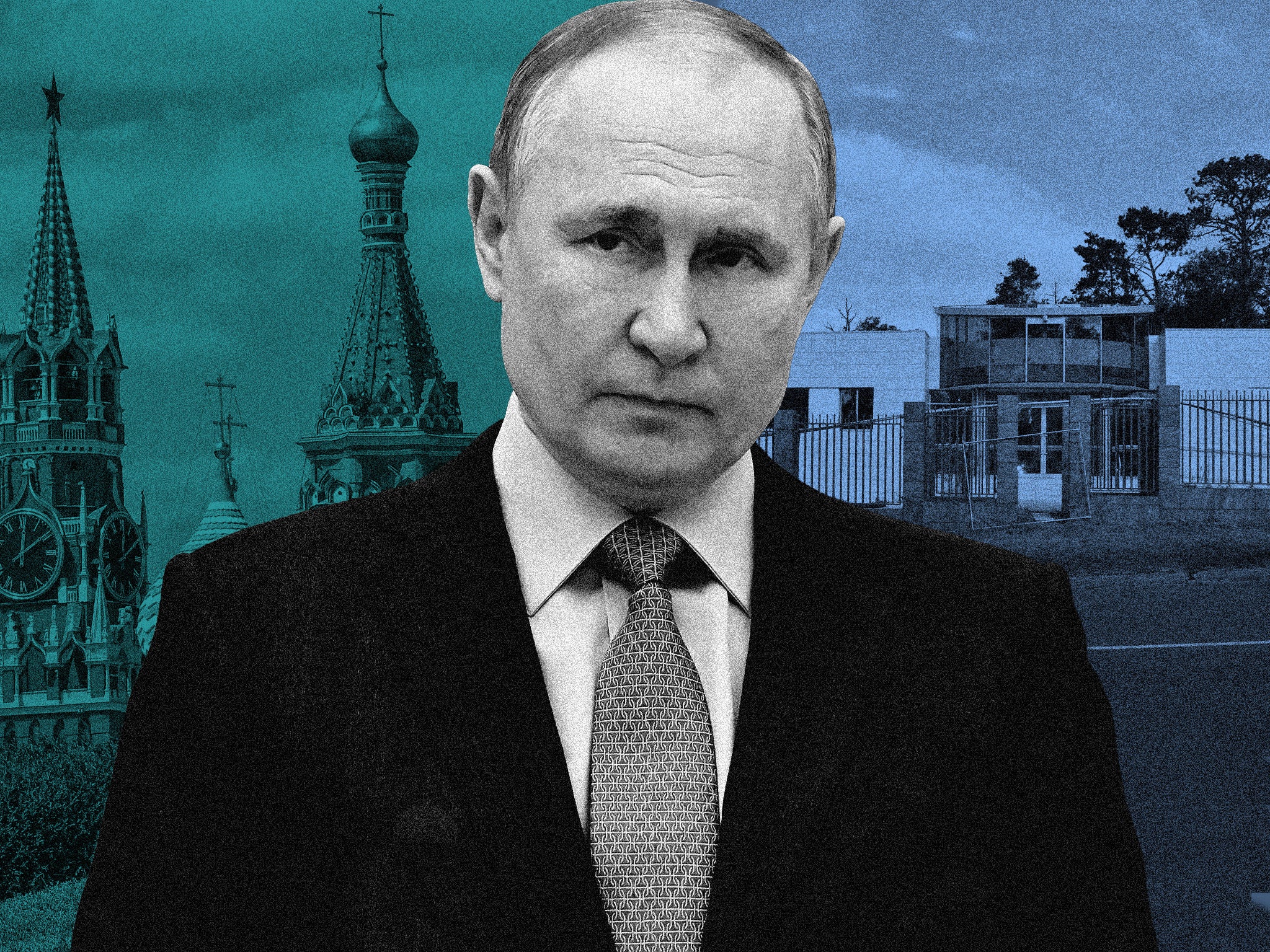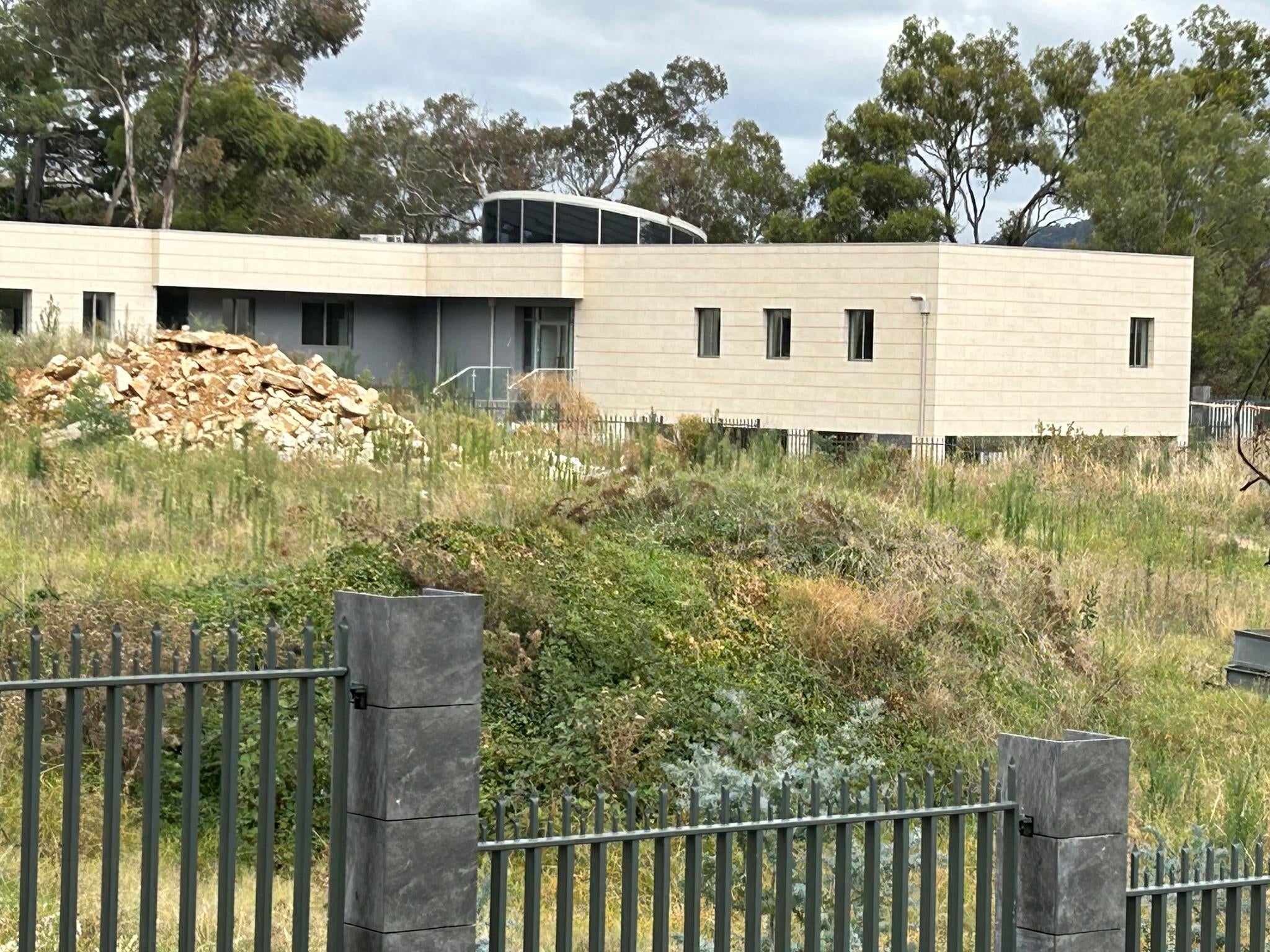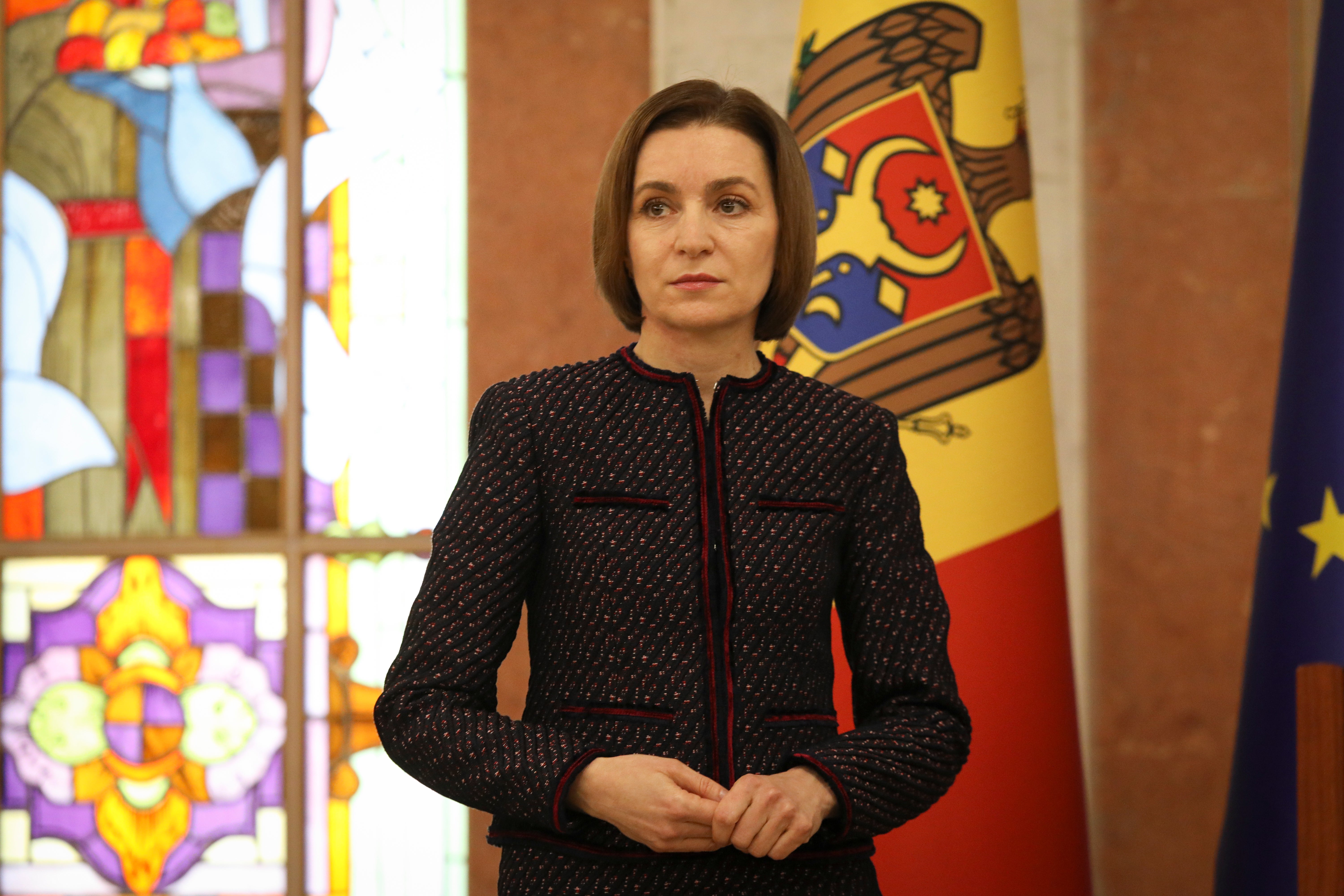Aussie Rules: A farce over the Russian embassy in Canberra shows just how isolated Moscow has become
The bizarre row over the location of the complex is the latest example of Moscow’s global influence being summarily squeezed by nations opposing its invasion of Ukraine, writes Chris Stevenson


A bloke standing in the cold on a bit of grass in Canberra is not a threat to our national security,” said Australia’s prime minister, Anthony Albanese, on Friday – responding to reports that a suspected Russian diplomat is squatting on the land of a proposed embassy.
Earlier this month, Australia passed a law to prevent Moscow from moving its embassy from a Canberra suburb to a site close to the Australian parliament and China’s embassy. Moscow says it has spent AU$5.5m (£2.9m) on the site since it was granted the lease in 2008 and has accused Australia of “Russophobic hysteria” for cancelling the lease. Completed works include fencing and a single perimeter building that was to be part of a planned complex of several buildings.
The Australian newspaper reported on Thursday that a Russian diplomat was squatting on the land under the watch of police, who were apparently unable to arrest him as he has diplomatic immunity. There was no official response from the Russian embassy in Canberra by Friday afternoon, but Russia’s state RIA news agency quoted the mission as saying that it had taken the matter to Australia’s High Court and various people were involved
The embassy told RIA that staff members – without identifying them – were at the site to protect an already constructed building and the supplies stored there, and police had made no attempt to remove them from the location. Russia has informed Canberra that it intends to challenge the scrapping of the lease in the High Court on constitutional grounds.
“Australia will stand up for our values and we will stand up for our national security, Mr Albanese said. “The site is secure and we are comfortable with our position.”
Australia is one of dozens of nations to have seen diplomatic relations with Moscow nosedive since Russia’s invasion of Ukraine in February 2022, particularly states around Europe. Hundreds of diplomats were expelled in the first few months of the invasion, with reasons ranging from the general “national security concerns” to condemnation of Russia’s “aggression”, a response to allegations of Russian war crimes or accusations of spying and espionage. The largest mass expulsion was in Bulgaria, with 70 diplomats forced out by the end of June last year.

“We have expelled 70 Russian diplomats ... Many of them have worked directly for [intelligence] services and their diplomatic role has been more like a cover,” Bulgaria’s then prime minister Kiril Petkov said at the time. “This is not an act of aggression towards the Russian people ... When foreign governments are trying to meddle in our internal affairs, we have institutions that will respond.”
By November, the director general of MI5 said in its annual threat update that more than 600 Russian officials had been expelled across Europe and around the world, with 400 having been judged to be spies.
“This has struck the most significant strategic blow against the Russian Intelligence Services in recent European history,” Ken McCallum said. “And together with coordinated waves of sanctions, the scale has taken [Russian president Vladimir] Putin by surprise.
Beyond diplomats, that same month Swedish media described elite police rappelling from two Black Hawk helicopters to arrest a couple that had allegedly spied for Russia, during a pre-dawn raid near Stockholm.
In February 2023, Moldova – located between Romania and Ukraine – accused the Kremlin of planning to stage a coup. Moldova’s president, Maia Sandu, said that authorities had confirmed an alleged Russian plot to overthrow the country’s pro-EU government through violent actions disguised as opposition protest.
In March, the country said it had made a number of arrests. “Russian actors, some with current ties to Russian intelligence, are seeking to stage and use protests in Moldova as a basis to foment a manufactured insurrection against the Moldovan government,” US National Security Council spokesperson John Kirby warned at the time, adding that the goal is probably for Moscow to install a pro-Kremlin administration.

Moldova’s minister of internal affairs Ana Revenco said: “I send the warning to the traitors of the country that they will soon stand before the court, no matter how much money and help they receive to destroy our country.”
Around the same time, Polish authorities detained members of what they labelled a Russian espionage ring, alleging they were preparing acts of sabotage in Poland and had been monitoring railroad routes used for the transport of weapons into Ukraine, and that they had planned to plant GPS transmitters on those shipments.
Also in March, the Greek intelligence service released a rare statement suggesting it had exposed an alleged spy who had fled weeks before, seemingly using a crafts shop in Athens as a base of operations. Greek intelligence officials accused the alleged spy of acting “independently” from the Russian embassy in the capital, certainly making it a unique spy case for the nation.
One of the most recent diplomatic expulsions came from Finland earlier this month. The nation, which shares a land border with Russia, joined Nato earlier this year, having applied for membership in the wake of Moscow’s invasion of Ukraine. “Finland will expel nine persons working at the Embassy of Russia who are members of intelligence personnel,” the government said in a statement. In March, the country’s intelligence agency said Russia’s ability to act in the country had been “squeezed”.
The agency, known by the abbreviation Supo, noted that operations under diplomatic cover have traditionally been the main instrument of Russian intelligence abroad and Moscow could be seeking to use cyberespionage to make up for the lack of people to call upon.
“While Russia is still seeking to station intelligence officers under diplomatic cover, it will have to find ways of compensating for the human intelligence shortfall, such as by increasingly adopting other forms of covert operation abroad,” agency director Antti Pelttari said.
Moscow has engaged in numerous tit-for-tat expulsions across the 16 months of its invasion, expelling scores of foreign diplomats itself. It has also sought to ensure the world knows that its intelligence capabilities are solid. There is little doubt that all of this will have had an impact – and cases like the one in Australia will continue to do so.
Join our commenting forum
Join thought-provoking conversations, follow other Independent readers and see their replies
Comments
Bookmark popover
Removed from bookmarks